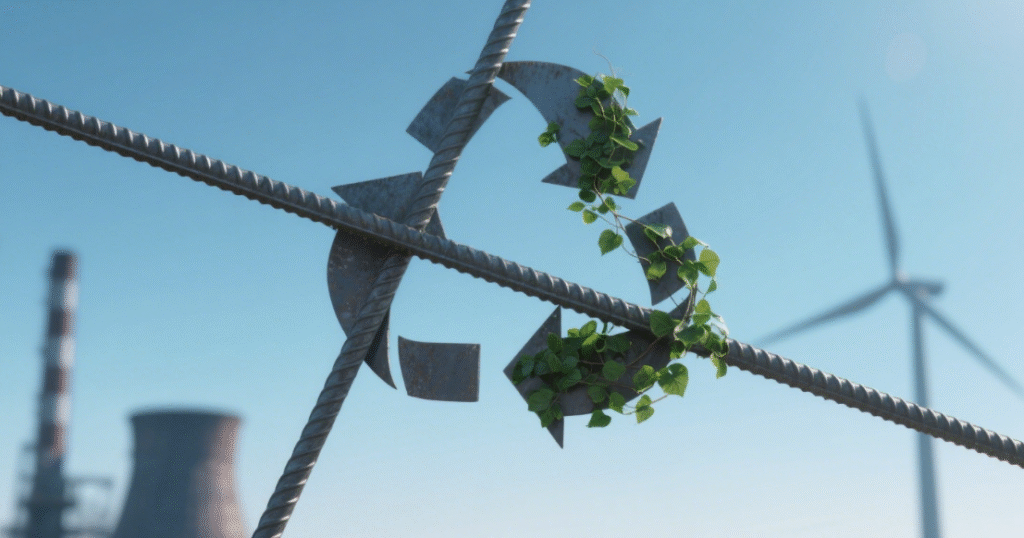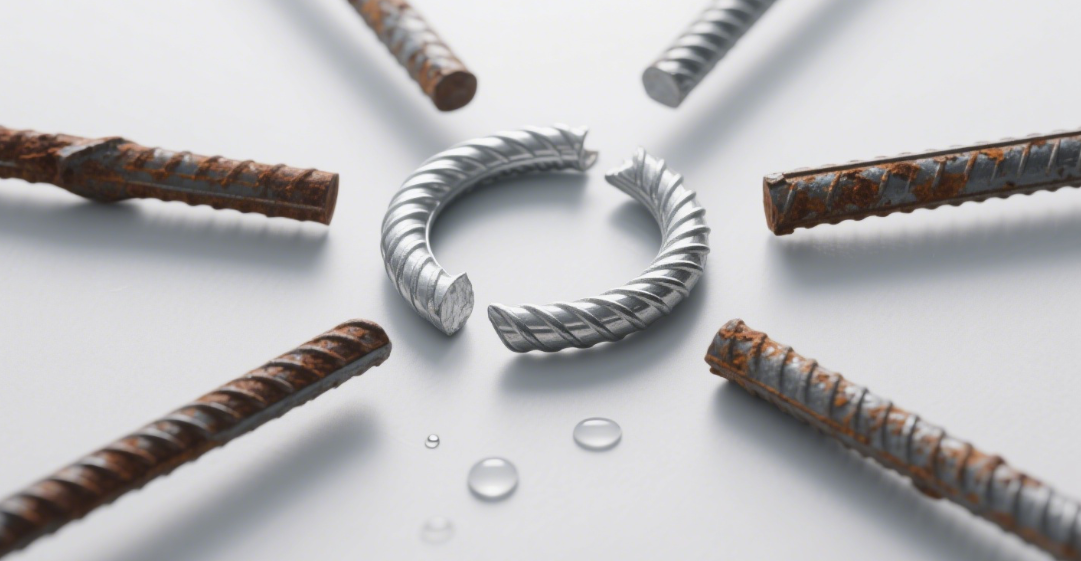
Why Eco-Conscious Metal Rebar Production Is Essential for Future Projects
Table of Contents
Introduction

The construction industry is at the heart of global economic development, but it is also one of the largest contributors to environmental degradation. As governments, organizations, and industries work towards more sustainable practices, one of the most critical shifts in construction is the move towards eco-conscious materials. Among these, metal rebar—an essential element in reinforcing concrete structures—has gained significant attention.
Historically, the production of metal rebar has been energy-intensive, using large amounts of natural resources and emitting significant levels of carbon dioxide. However, as the world faces increasing environmental challenges and as regulatory pressures intensify, eco-conscious metal rebar production has become a crucial focus. Sustainable methods not only help mitigate environmental impact but also offer significant benefits in terms of cost reduction, energy efficiency, and compliance with global green building standards.
In this blog, we’ll dive deep into why eco-conscious metal rebar production is essential for future projects. We will examine the impact of sustainable practices, discuss the regulations driving change, and highlight how leading companies, like Henan Jiyuan Iron & Steel (Group) Co., Ltd., are shaping the future of construction with innovative, sustainable solutions.
The Growing Demand for Eco-Friendly Metal Rebar in Construction
In recent years, the construction industry has seen a marked shift towards more sustainable practices. According to the Global Construction Perspectives, the construction sector is projected to contribute to around 40% of global carbon emissions by 2030 if current practices remain unchanged. As the industry faces mounting pressure from both governments and environmental organizations, there is an increasing demand for materials that support energy efficiency, lower carbon footprints, and comply with evolving environmental standards.
Eco-friendly metal rebar is at the forefront of this shift. Sustainable practices in rebar production, such as recycling steel and optimizing energy consumption, significantly reduce the environmental impact compared to traditional methods. Henan Jiyuan Iron & Steel (Group) Co., Ltd. has been a pioneer in this space, providing high-quality, eco-conscious rebar that aligns with green building certifications such as LEED (Leadership in Energy and Environmental Design) and BREEAM (Building Research Establishment Environmental Assessment Method).
Key Sustainable Practices in Metal Rebar Production

1. Recycling Steel Scrap
One of the most impactful sustainable practices in rebar production is the use of recycled steel scrap. According to the World Steel Association, steel is one of the most recycled materials globally, with approximately 90% of steel scrap being reused. By incorporating recycled materials, manufacturers reduce the need for virgin raw materials such as iron ore, coal, and limestone, which are energy-intensive to extract and refine.
Using recycled steel not only reduces energy consumption but also helps conserve natural resources, ultimately leading to lower carbon emissions. Henan Jiyuan Iron & Steel leads the industry by incorporating recycled steel scrap into its production processes, offering clients a more sustainable alternative for their construction needs.
2. Energy-Efficient Production Technologies
The production of metal rebar traditionally requires high temperatures and large amounts of energy, contributing to significant carbon emissions. However, companies like Henan Jiyuan Iron & Steel have invested in energy-efficient technologies that reduce energy consumption during the production process. These technologies include advanced electric arc furnaces (EAF) and continuous casting systems, which use less energy and result in lower greenhouse gas emissions compared to traditional blast furnace methods.
By adopting energy-efficient production methods, these companies not only meet the growing demand for sustainable materials but also provide cost-effective solutions to customers by lowering operational costs.
3. Waste Minimization and Circular Economy
Waste reduction is a core principle in eco-conscious metal rebar production. Manufacturers are increasingly adopting practices that minimize waste generation at every stage of production. Rebar manufacturers like Henan Jiyuan Iron & Steel ensure that all scrap produced during the manufacturing process is either recycled back into the system or repurposed, effectively implementing a circular economy model.
By minimizing waste, manufacturers can reduce the environmental impact of their operations while providing their clients with a more sustainable product.
The Benefits of Using Recycled Metal Rebar
Using recycled metal rebar presents multiple advantages for construction projects. These benefits go beyond just environmental impact and extend into economic and operational areas:
1. Reduction in Carbon Emissions
Recycled metal rebar has a significantly lower carbon footprint than traditional rebar produced from virgin materials. The use of electric arc furnaces (EAF) in recycling steel consumes less energy than blast furnaces, which are responsible for much of the industry’s carbon emissions. This reduction in carbon emissions is critical as industries face growing pressure to comply with international climate agreements such as the Paris Agreement.
2. Lower Production Costs
Recycling steel reduces the costs associated with extracting and processing raw materials. By using recycled steel scrap, Henan Jiyuan Iron & Steel can offer competitive pricing without compromising on quality. The cost-effectiveness of recycled metal also benefits construction projects, which often face tight budget constraints.
3. Compliance with Green Building Standards
As green building certifications become increasingly important, using eco-friendly rebar helps construction projects meet the sustainability requirements of certifications such as LEED and BREEAM. These certifications require that a certain percentage of building materials come from recycled sources or that the materials are produced through energy-efficient processes.
Henan Jiyuan Iron & Steel’s commitment to sustainable practices makes its products an ideal choice for builders and contractors looking to achieve green certifications.
Table: Benefits of Eco-Conscious Metal Rebar vs. Traditional Metal Rebar
| Feature | Eco-Conscious Metal Rebar | Traditional Metal Rebar |
|---|---|---|
| Production Energy Consumption | Lower due to recycling and efficient technologies | Higher due to reliance on virgin materials and traditional methods |
| Carbon Emissions | Significantly reduced through recycling and energy-efficient methods | Higher due to energy-intensive production processes |
| Material Sourcing | Primarily from recycled steel scrap | Sourced from virgin iron ore and raw materials |
| Cost of Production | Often lower due to recycled material use | Higher due to extraction and refining costs of raw materials |
| Compliance with Green Standards | Helps achieve LEED, BREEAM certifications | Less likely to meet green building standards without added efforts |
Meeting Regulatory Standards: How Sustainable Rebar Fits into Global Regulations

As countries around the world ramp up their environmental regulations, the construction industry is under increasing pressure to adopt eco-friendly materials. For instance, the European Union’s Green Deal and China’s 13th Five-Year Plan focus heavily on reducing industrial emissions and improving the sustainability of manufacturing processes.
In response to these regulatory changes, Henan Jiyuan Iron & Steel has made substantial investments in green technologies and eco-friendly production methods to ensure compliance with both domestic and international environmental standards. This commitment ensures that clients in both local and global markets can rely on the company’s products for projects that require compliance with stringent environmental regulations.
Challenges in Transitioning to Eco-Conscious Metal Rebar Production
Despite the clear benefits of eco-conscious metal rebar, there are challenges associated with its widespread adoption:
- High Initial Costs for Infrastructure Upgrades: Transitioning to energy-efficient technologies and recycling processes can require significant upfront investment, which may deter smaller manufacturers from making the switch.
- Supply Chain Constraints: The availability of high-quality recycled steel scrap can fluctuate, leading to supply chain issues for manufacturers relying on recycled materials.
- Resistance to Change: Traditional manufacturers accustomed to conventional methods may be hesitant to adopt sustainable practices due to perceived higher costs or a lack of knowledge about new technologies.
However, companies like Henan Jiyuan Iron & Steel are addressing these challenges head-on by investing in advanced recycling facilities and forging long-term relationships with suppliers to ensure a consistent supply of recycled materials.
Conclusion
The shift towards eco-conscious metal rebar production is not just a trend but a critical necessity for the future of the construction industry. As global regulations tighten and sustainability becomes a more significant factor in project planning, adopting eco-friendly practices in rebar production is no longer optional—it’s essential.
By choosing eco-conscious metal rebar, construction companies can reduce their environmental impact, comply with green building standards, and realize significant cost savings. Companies like Henan Jiyuan Iron & Steel are leading the charge in providing high-quality, sustainable rebar solutions that meet the demands of modern construction projects.
As a trusted supplier of high-quality metal rebar, Henan Jiyuan Iron & Steel (Group) Co., Ltd. is committed to helping you achieve your sustainability goals. For more information about our products and to receive a personalized quote, contact us today!
FAQ
What is eco-conscious metal rebar?
Eco-conscious metal rebar is produced using sustainable methods, including recycling steel scrap and optimizing energy consumption to reduce environmental impact.
How does using recycled metal rebar benefit the environment?
Recycled metal rebar reduces carbon emissions, minimizes waste, and conserves natural resources compared to traditional rebar made from virgin materials.
Can eco-friendly rebar be used in all types of construction projects?
Yes, eco-friendly rebar is suitable for all types of construction, including residential, commercial, and infrastructure projects, as long as it meets the required specifications.
How can I ensure the rebar I use is eco-friendly?
Choose suppliers like Henan Jiyuan Iron & Steel that prioritize sustainable production processes and compliance with green standards can offset the additional cost.
What are the cost implications of using eco-conscious metal rebar?
While the initial cost may be slightly higher, the long-term savings from reduced energy use, waste disposal, and compliance with green standards can offset the additional cost.
For more information about our sustainable rebar solutions, contact Henan Jiyuan Iron & Steel (Group) Co., Ltd. today!






